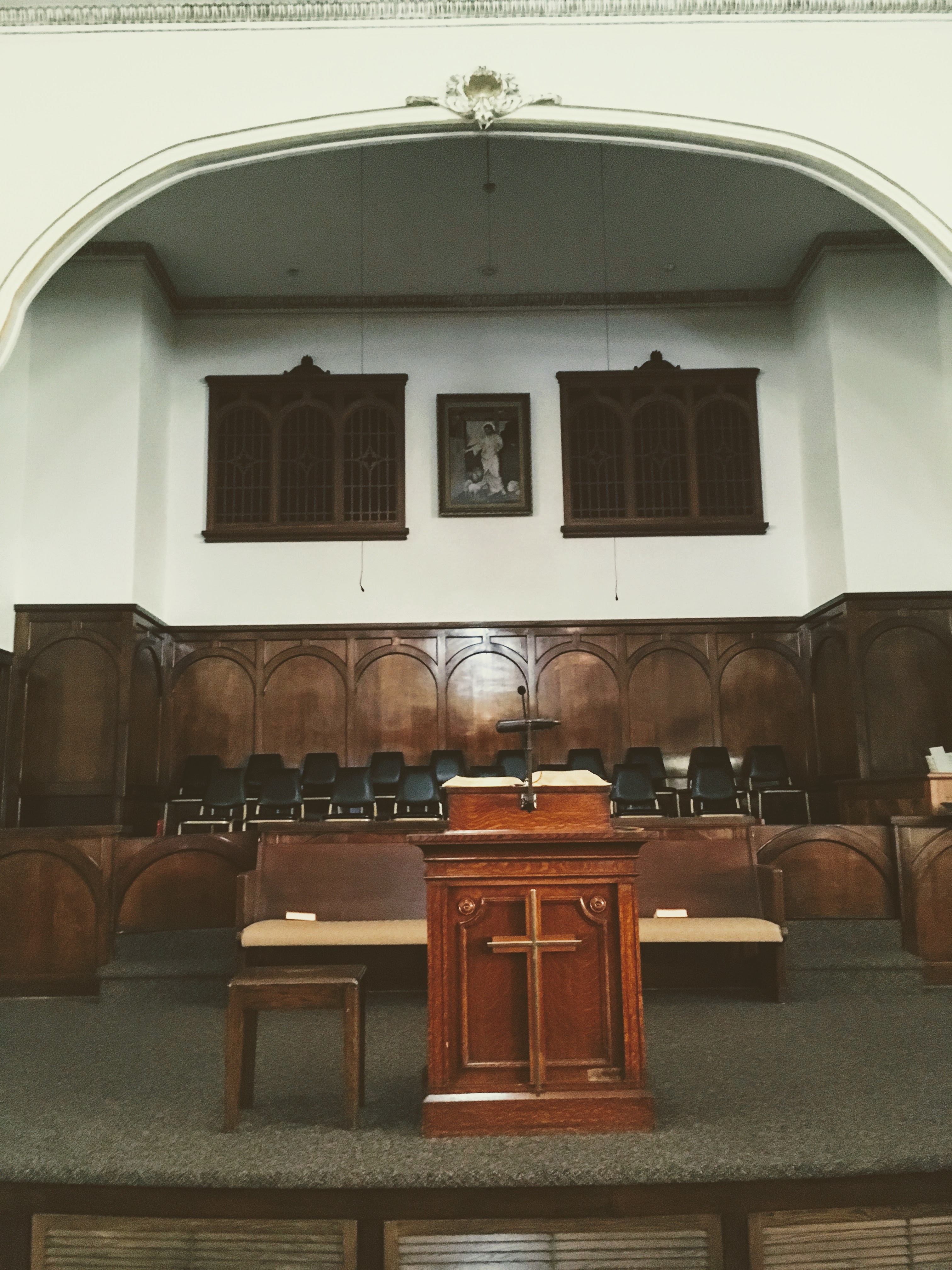July 11, 2021
Order of worship
Prelude: Rosemary Nettrouer
Announcements
Welcome & Greeting
Music
Call to Worship: 1 Peter 1:13-16 (The Message)
So roll up your sleeves, get your head in the game, be totally ready to receive the gift that’s coming when Jesus arrives. Don’t lazily slip back into those old grooves of evil, doing just what you feel like doing. You didn’t know any better then; you do now. As obedient children, let yourselves be pulled into a way of life shaped by God’s life, a life energetic and blazing with holiness. God said, “I am holy; you be holy.”
Centering Meditation
Music
Children’s Message
Prayer Concerns
Pastoral Prayer
Message: “God’s Call to Holiness”
Scripture: Leviticus 18
Open Worship
Enjoy the quiet as a respite from life’s busyness.
Connect with God and with one another in prayer.
Open yourself to the healing Light of God’s Spirit.
Find grounding in love and gratitude.
Share vocal ministry as God leads.
Benediction
Postlude: Rosemary Nettrouer
Prelude: Rosemary Nettrouer
Announcements
Good morning!
Ann McDonald fell and broke her pelvis, is too weak for rehab. Please keep her son Rich and her grandson Ryan as they accompany her on this journey.
Message: “God’s Call to Holiness”
Scripture: Leviticus 18
Years ago, when I was living in Indianapolis, probably in the 1990s, I went to a program at the public library downtown. The speaker that evening was Anne Lamott, whose book about her son’s first year had spoken to my heart.
The librarian introduced the speaker, and there she was — a small rather bird-like white woman with short dreadlocks. She peppers her writing with four-letter words, and she realized that her California style might be a bit much for an audience of Indiana readers. So she suggested that, in order to avoid startling us later in the talk, she would just say some four-letter words right off the bat.
I borrowed that strategy when I was teaching a course in Christian sexual ethics to first-year students at Earlham College. On the first day of class, as I introduced the topics we were going to discuss over the semester, I said some of the words that were likely to come up.
I sort of think I should do that this morning because, in this third message in a series on marriage and sexuality, our text is Leviticus 18, and it talks about some topics that you might not have heard very often from the pulpit: incest and bestiality, for example. See what I mean?
And I am going to talk about sex today. In the process, I will try to walk a fine line between not grossing you out while also speaking plainly.
So, context.
The first two messages in this series have been based on stories in Genesis – the creation story of Genesis 1, and the story of Sodom and Gomorrah of Genesis 19. Genesis 1 is part of what scholars call the Primeval Prologue (Genesis 1-11), and Genesis 19 is part of the story of Abraham and Sarah within the ancestral stories of Genesis 12-50. At the end of Genesis, the ancestors have found a home in Egypt.
Exodus picks up the story in Egypt. The first fifteen chapters of Exodus tell the story of Moses and how he came to lead Abraham’s descendants out of Egypt to Mt. Sinai, where they received instructions from God, including the Ten Commandments and instructions for building a portable worship space.
Leviticus comes next, with pretty much no story at all. “For the most part,” says my favorite book about the Old Testament (Hebrew Scriptures), “the material is a record of religious laws” (Bandstra, Reading the Old Testament, p. 168).
Most readers think it is boring; after all, it deals with rules for sacrifices, worship, priests, and purity. Since most of these rules are not followed today by any religious community, Jewish or Christian, what could be less interesting or relevant?
Well, maybe the text and its subject matter are not all that gripping at first, but they do convey the vision of Israel’s ideal relationship with God. (pp. 170-171)
How do you have a relationship with a holy God? Live a holy life. How do you live a holy life? Follow these rules.
Leviticus chapters 1-16 are instructions for priests, while chapters 17-27 are instructions by priests to the people (Bandstra, p. 179). The instructions to the people are called “The Holiness Code.”
Leviticus 18 starts with this introduction (from The Message):
1-5 God spoke to Moses: “Speak to the People of Israel. Tell them, I am God, your God. Don’t live like the people of Egypt where you used to live, and don’t live like the people of Canaan where I’m bringing you. Don’t do what they do. Obey my laws and live by my decrees. I am your God. Keep my decrees and laws: The person who obeys them lives by them. I am God.
Verse 6 says, ““Don’t have sex with a close relative. I am God.” And then the text gets specific: don’t have sex with your mother or stepmother, your sister or stepsister or half-sister, your granddaughter, your aunt, your daughter-in-law, your sister-in-law, your neighbor’s wife.
Before I go on, I want to point out that this section has to do with limiting male privilege. Why do I say that?
- It’s not addressed to women. It focuses on who men can’t have sex with, almost like the authors didn’t imagine women to have moral agency or choices to make about their sexual lives. Almost.
- The reasoning that the text gives for most of these limits has to do with violating another man’s territory. For example, verse 14 “Don’t violate your father’s brother, your uncle, by having sex with his wife.”
- One close relative is not on the list. Did you catch it? “Your daughter” is not on the list. A daughter would be a close relative, but she’s not in another man’s territory.
I am not saying that the ancient Hebrews would have thought it was OK for a man to have sex with his daughter, but not including one’s daughter on the list signals that the values behind these rules might not be values we share.
Why would they need rules about such things? Well, probably because some people were doing them. As much as the text presents these rules as needed to “make sure we’re not like those people,” there was a reason to talk to the children of Israel about these specific matters. Also, no evidence exists that “those people” were exceptionally depraved (NOAB, p. 169n).
Then there’s verse 22: “Don’t have sex with a man as one does with a woman. That is abhorrent.”
And its companion verse in chapter 20, verse 13: “If a man has sex with a man as one does with a woman, both of them have done what is abhorrent. They must be put to death….”
At first glance, these verses seem to condemn male same-sex behavior in no uncertain terms.
But the matter is not as clear-cut as might at first appear.
For one thing, Acts 15 releases Christians from following all the rules of Leviticus. Christians often ignore the rule against eating shellfish and the rule against wearing mixed fabrics. If we did follow the rules of Leviticus, we could no longer participate in Red Lobster’s all you can eat shrimp day. And you better check your shirt tags – no cotton and polyester blends.
And that harsh penalty? Put them to death? Here’s Leviticus 20, verse 9: “Any and every person who curses his father or mother must be put to death.”
Leviticus doesn’t reflect our values.
When looking at what values might lie behind the condemnation of a man having sex with another man, several theories have been put out there. Here are some of them:
- It was associated with people and practices the priests found threatening.
- It was associated with idolatry, particularly temple prostitution related to fertility rituals of other religions. (Jung & Smith,71; Grippo, 37)
- It didn’t make sense “to an underpopulated people that depended on high fertility for their very survival” (Grippo, 37, cited in Griffith, p. 9)
As I have written elsewhere, “The Jewish rabbinic tradition interpreted these verses as having to do with ‘wasting seed.” (Griffith 9). For centuries, people believed that males planted the human seed into females’ fertile field. These days we take for granted that these seeds are a renewable resource and that both male and female contribute genetic material.
It would treat a man as if he had no agency (like a woman). If having sex with another man’s wife violates that man, what would it mean to have sex with the man himself? It would be violating not only his territory but him. If the other rules about sex have to do with protecting male privilege, sex with a man violates male privilege in a particularly intense way.
Are we worried about male privilege in that way? Mostly not. Mostly. 😊
To the extent that we recognize LBGTQ realities in our midst and not just a feature of other peoples and cultures
To the extent that we no longer worry about temple fertility rituals
To the extent that we worry more about overpopulation than underpopulation when we think about the survival of the species
To the extent that wasting seed isn’t a concern,
“To the extent that the Christian tradition admits the value of mutuality and equality in sexual relationships, the Leviticus prohibitions would not stand” (Griffith, pp. 9-10).
Our sex lives do have something to do with living a holy life.
We are meeting in person and also streaming our sermons on Facebook at 10:00 AM CST. Watch live:
https://www.facebook.com/universityfriendschurch/
Not on Facebook? You can see all of our posts and videos on our site here!



